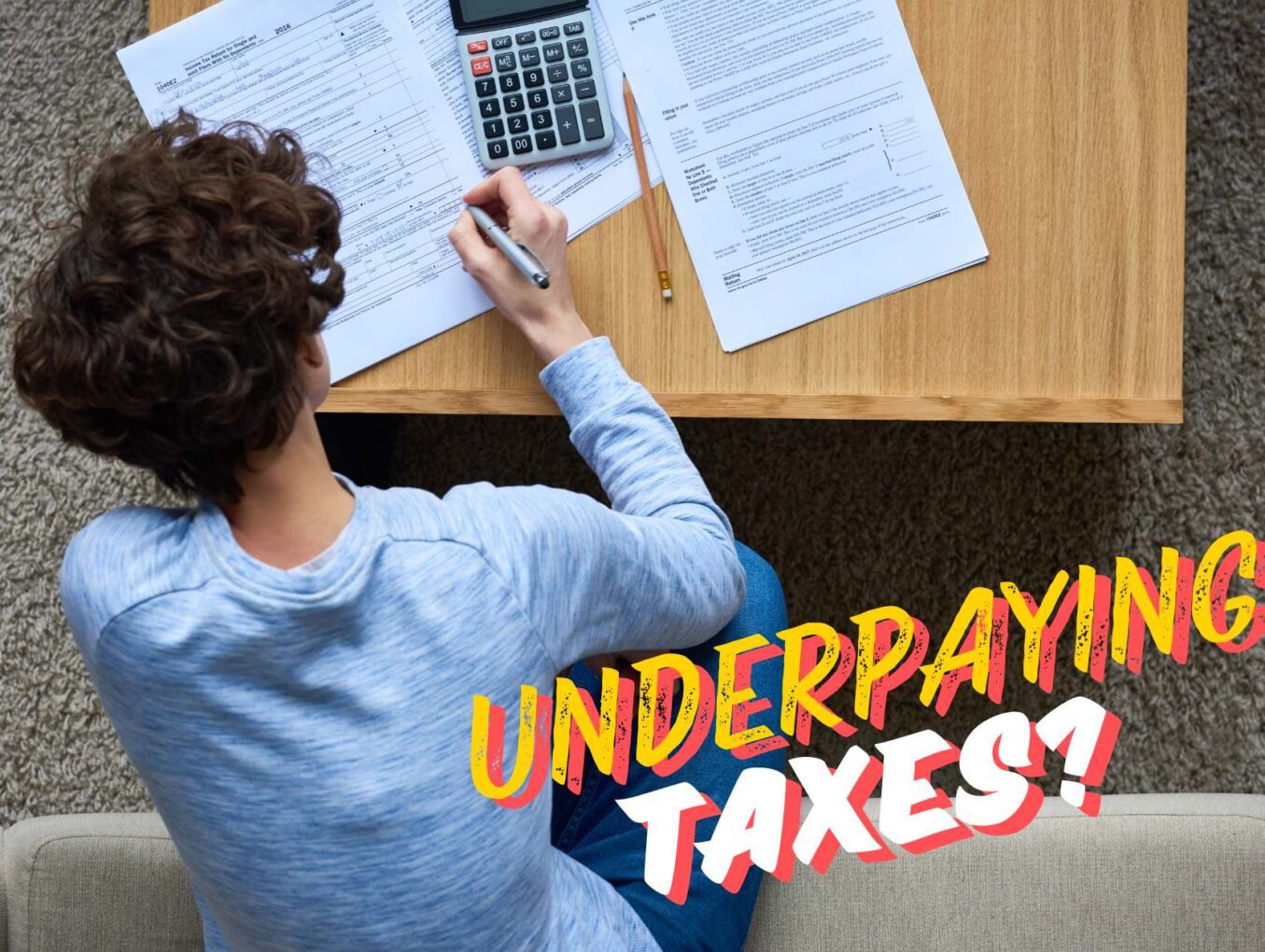The IRS expects every taxpayer to pay taxes on income either via estimated quarterly payments or paycheck withholding throughout the year. If you fail to pay at least 90% of taxes you owe by the April deadline or 100% of last year’s tax liability and owe over $1,000 when you file your return, the IRS will charge an underpayment penalty.
In addition to this penalty, the IRS adds interest to your tax balance until you pay in full. If you fail to pay your back taxes (including penalties and interest), the IRS can file a lien on your property, garnish your wages, levy your back account, and more.
We will review the consequences of unpaid taxes in more detail.
Should I Pay Some of My Taxes Even If I Can’t Pay the Full Amount to the IRS?
It is always best to pay IRS taxes in full by the April deadline to avoid a Failure to Pay Penalty (0.5% of unpaid taxes each month up to 25%) and interest.
However, if you are unable to pay your taxes in full, pay as much as you can to reduce penalties and interest, and request an IRS payment plan for the remaining balance.
These plans allow you to make smaller monthly installment payments until your total taxes are paid off. If you set up an installment agreement, the IRS will even reduce a Failure to Pay Penalty while you are on the payment plan.
Besides Owing Unpaid Taxes, Will I Have to Pay Additional Penalties and Interest?
As mentioned, the IRS charges a Failure to Pay Penalty when you do not pay taxes on time. Underpayment penalty amounts are calculated as a percentage of taxes you underpaid or have not paid.
In addition to penalties, interest accrues on unpaid taxes starting from the April due date until you pay in full. Interest rates can change each quarter. IRS interest rates equal the federal short-term rate plus 3%.
For Q2 2024, the IRS interest rate for underpayments for individuals is 8%. The IRS posts its current interest rates at https://irs.gov/payments/quarterly-interest-rates.
How Much Does the Penalty Cost for Underpaying Federal Taxes?
The penalty for underpaying federal taxes is 0.5% of your underpaid amount each month you do not pay (up to 25% of your unpaid taxes). If you file your federal return on time and are on an IRS payment plan, the IRS will reduce your Failure to Pay Penalty from 0.5% to 0.25% for the duration of your payment agreement.
If I’m Owed a Tax Refund but Underpaid Estimated Taxes, Can the IRS Penalize Me When I File My Return?
Yes, the IRS says underpayment penalties still apply even when they owe you a refund because you underpaid your estimated taxes. In this case, you may lose part or all of a refund depending on the difference between your refund and underpayment penalty amounts.
Can the IRS Garnish My Wages or Levy My Bank Account If I Underpay Taxes?
Yes, the IRS can take money from your paycheck and bank account(s) when you underpay your taxes. This typically occurs after the IRS has tried other methods to collect your unpaid taxes, such as sending balance due notices to give you the opportunity to pay or set up a payment plan.
If those efforts are unsuccessful, the IRS can take more aggressive action to collect what you owe. Garnishing wages involves asking your employer to withhold some of your pay for the IRS to settle your tax debt.
Levying a bank account means the IRS can legally seize funds from your checking and savings accounts to pay your back taxes.
Will the IRS Place a Lien on My House for Underpaying Taxes?
Yes, the IRS can also place a lien on your house if you underpay taxes, especially if you owe a significant amount and have not made payment arrangements to resolve your tax debt.
However, the IRS will first attempt to collect the unpaid taxes by sending notices and balance due reminders.
If you still do not pay or request tax relief (installment agreement, Offer in Comprise, Currently Not Collectible), the IRS can file a Notice of Federal Tax Lien to alert creditors that they have a legal claim to your property.
When you underpay taxes, penalties and interest can add to what you already owe the IRS and increase your risk of a lien and/or levy. The longer you wait to pay, the higher your tax liability will be.
To avoid or at least minimize penalties and interest, pay as much of your taxes as you can by the April tax deadline, even if you request an extension to file.
Need more help? You can start online by answering 6 simple questions.
6 Simple Questions. Free Evaluation.

